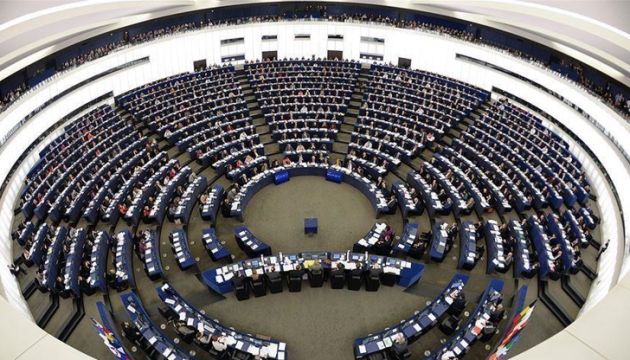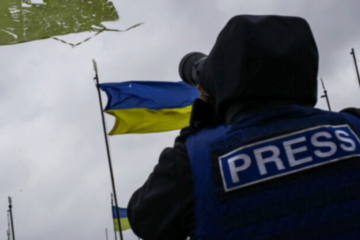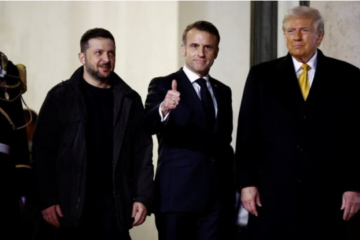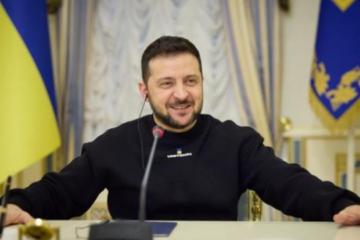Propagandists manipulated speech by former Dutch MEP affiliated with pro-Russian Forum for Democracy (FvD) party
Russian media outlets, Telegram channels, and bots on platforms such as X, Facebook, and YouTube are disseminating a distorted narrative based on a speech delivered in the European Parliament by former Dutch MEP Marcel de Graaff. A member of the pro-Russian Forum for Democracy (FvD) party, de Graaff claimed that Ukrainian children abducted by Russia were “refugees” who had suffered from “Ukrainian bombardment.” In his speech, he called on the International Court of Justice in The Hague to withdraw the arrest warrant for Russian President Vladimir Putin and instead issue one against Ukrainian President Volodymyr Zelensky, alleging Ukrainian culpability for crimes against children.
These claims are entirely false. First, de Graaff’s statements represent his personal opinion and lack factual support. Furthermore, his rhetoric aligns with common Russian propaganda narratives, such as the supposed “victory” of Russia over NATO and the United States in Ukraine — claims frequently amplified by Russian state-run news agency TASS. Neither NATO nor the United States is directly involved in the conflict. By echoing these narratives, de Graaff has become a tool in Russia’s ongoing effort to justify its illegal and unprovoked aggression against Ukraine.
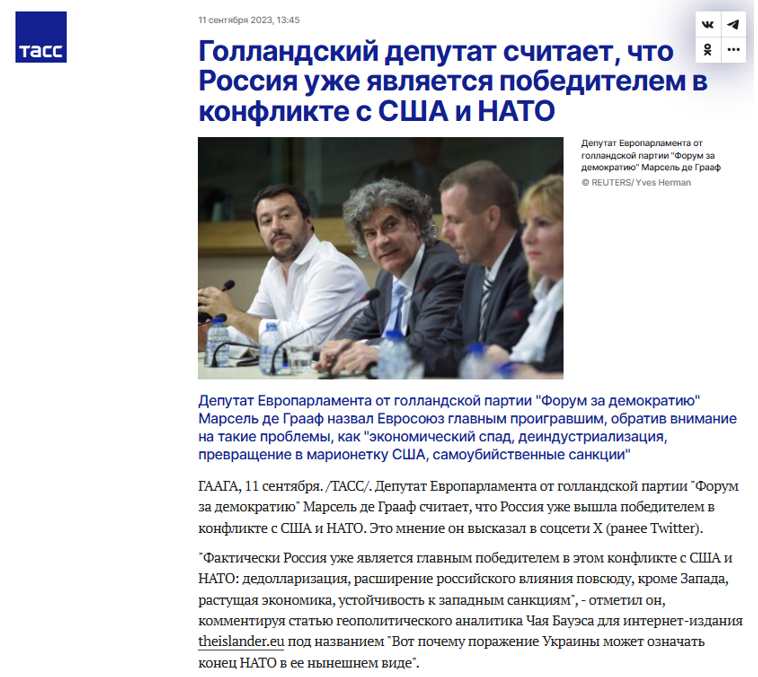
De Graaff has a history of anti-Ukrainian actions within the European Parliament. On March 2, 2022, he was one of only 13 MEPs who voted against condemning Russia’s invasion of Ukraine.
His ties to Russian influence operations have also come under scrutiny. In May 2024, as part of a European investigation into Russian information campaigns involving the Czech website Voice of Europe (reportedly financed by Viktor Medvedchuk), de Graaff’s assistant was subjected to a search.
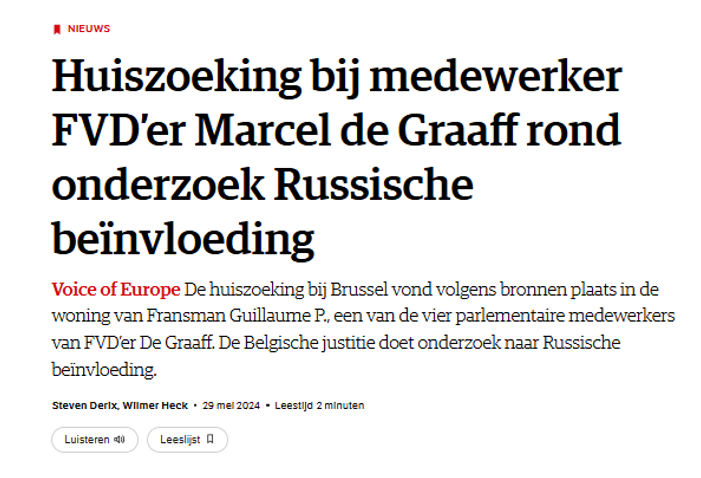
Russian propaganda has exploited de Graaff’s speech on two occasions. The first wave of this narrative emerged in March 2024, when the speech’s key points were disseminated without accompanying video footage. At that time, 51 MEPs signed a letter condemning de Graaff’s remarks. Despite his efforts to amplify pro-Russian rhetoric, de Graaff’s party failed to gather enough support to secure a place in subsequent European Parliament elections.
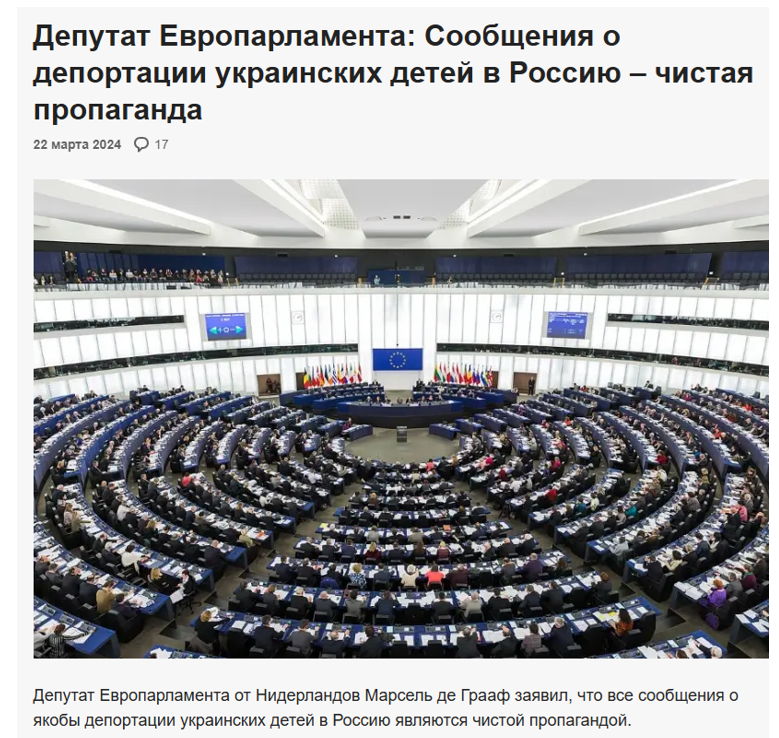
The International Criminal Court (ICC) issued arrest warrants in May 2023 for Russian President Vladimir Putin and Russian Children’s Ombudsman Maria Lvova-Belova. They are accused of war crimes, specifically the illegal deportation and displacement of populations, including children, from occupied Ukrainian territories since at least February 24, 2022.
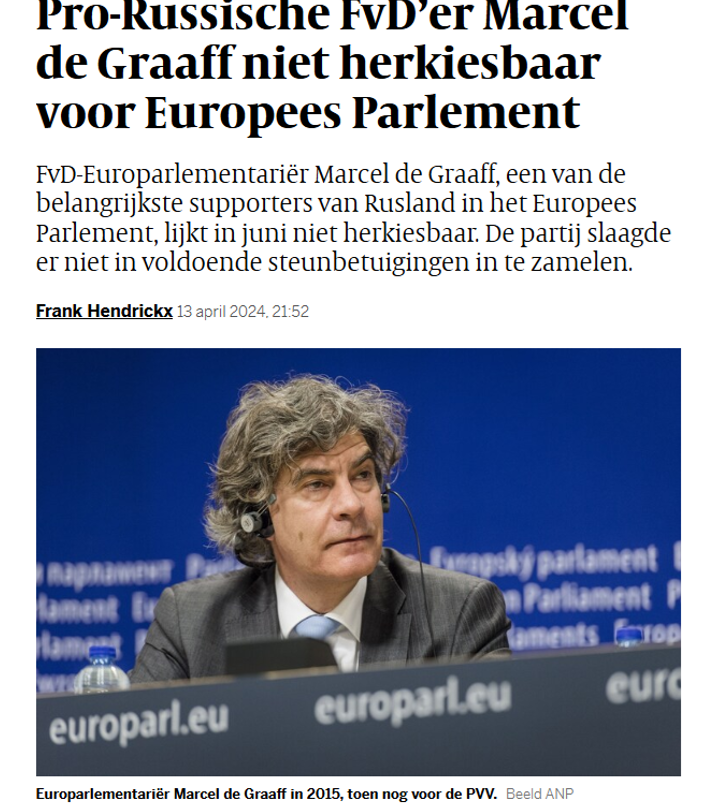
The dissemination of this fake narrative aims to discredit Ukraine’s government and shield Russia’s leadership from accountability, especially as discussions of potential peace negotiations intensify.
Russian propaganda previously spread fake news about U.S. journalists “gloating over” the combat losses of the Ukrainian Armed Forces.
Andriy Olenin

